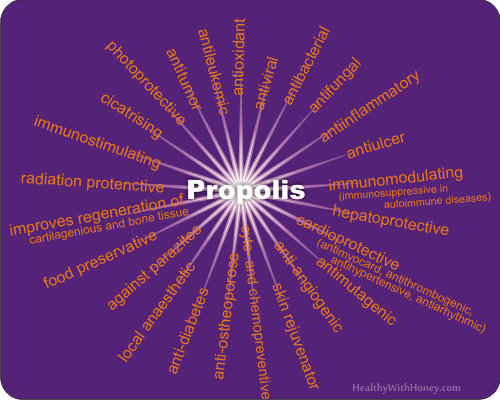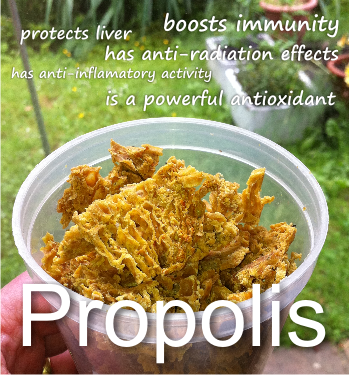A woman knows the feeling of embarrassment, shame, dirt, low self-esteem and bad sex experiences that vaginitis brings. To call it unpleasant is an understatement. How can we treat vaginitis naturally? Or otherwise, only to get free of it?
We go to the doctor when the symptoms are unbearable, undergo the treatment, improvement appears and after half a year, here it is again. Once you have it, it may come back any time.
So what shall we do? Go for the conventional medicine, as it is simpler to apply and the effects are 90%? Or go for natural remedies, with lower success percentage, but without side effects and with the possibility of alternating them till you reach the long-term effect?
Why trying to treat vaginitis naturally?
– If you had a course of conventional medicines that didn’t work, there are plenty of chances to have better results using natural products (according to recent studies listed bellow, some fungi are resistant to conventional untifungals but are killed by some natural products).
Besides, the antibiotics you have just taken have killed all bacteria, including the good ones. When vaginitis comes back, it will be even worse, because your friendly bacteria is not there to fight with it anymore.
– You may become immune to repeated use of synthetic antibiotics and antifungals and have no other solution then to resort to natural antibiotics.
– If you are pregnant, you cannot take synthetic antibiotics and must go naturally.
– If you are an immunocompromised patient, Candida albicans can result in invasive, systemic infections that are associated with a high incidence of mortality. Natural ways to approach this are mostly recommended.
What is vaginitis (aka vaginosis)?
We don’t need to know all the scientific details to know when it is a problem. The medical world roughly classifies it in bacteria vaginitis and fungal vaginitis. They have almost the same symptoms, but different treatments. We also need to know that roughly 50% of bacterial vaginitis is actually asymptomatic (study).
Here are the similarities:
– Itching (rashes), swelling and burning during urination, unpleasant odor, pain during sexual intercourse and vaginal discharge.
The differences are given by the vaginal discharge.
– In yeast infection, the odor of its discharge is virtually non-existent, but its consistency is typically described as something similar to cottage cheese.
– In bacterial infection the vaginal discharge can be thin white or grey, with a thin viscosity and a strong, fishy smell.
Bacterial vaginosis may go away on its own, but it’s better to use home remedies to hasten the recovery before things get worse.
Is vaginitis transmitted through sex?
No. Bacterial vaginosis is not a sexually transmitted disease. It occurs when we lack good friendly bacteria in the vagina and when the pH becomes too alkaline (above 4.8 on the pH scale).
How can this happen?
There are 2 possible explanations, for a healthy woman:
– Too much sex. (not the case if you are using condoms!) Men’s sperm is alkaline and too much of it will increase the alkalinity of your vagina, which should be acidic. Microbes are thriving in an alkaline medium.
– Too many douches. Whatever the reasons you have to take vaginal douches, you should know that you are also wiping out the friendly bacteria from your vagina and decrease its acidity.
Of course there are other reasons, mostly related to a weak health state caused by a disease or a certain medical treatment. It is known that too many antibiotics lead to the occurrence of Candida.
It is speculated that at least 75% of all women will experience a case of yeast infection at least once in their lifetime. Approximately 75% of women have contracted this disease once in their lifetime, while 50% and 5% of women experience it twice and more than 4 times a year, respectively.
Don’t be too harsh on yourself, it’s not your fault.
Can we treat vaginitis naturally?
Yes. There are several well-known products found at Amazon, that are very efficient:
· Apple cider vinegar (ACV) – raises the acidity level of your vagina, causing pathogenic bacteria to die out and restoring a balanced pH level; (an example: Organic, Apple Cider Vinegar with Mother)
· Yogurt (raw organic, not from the supermarket). Apply yogurt on the infected area with a cotton pad, the probiotics can directly act on the bad bacteria so it can be eliminated right away. The best way is to do it yourself, it is not difficult, you only need a yogurt starter, some milk and a simple device that makes things very easy.
· Tea tree oil – mix a few drops of it in a small bowl filled with warm water and use the mixture to rinse your vagina. Repeat this process daily for three to four weeks. The scent will counteract the bad smell produced by the discharge. Here is a blend of some essential oils, all with antifungal and antibacterial properties.
· Garlic – crush several cloves and apply to the infected area. Rinse with lukewarm water afterwards. It’s also recommended to eat raw garlic to add allicin into your immune system as well.
· Coconut oil – soak a tampon in coconut oil then insert it into your vagina for two hours. Also add coconut oil into your daily diet to give your immune system an antibacterial boost throughout your body.
· Probiotic ovules. They are available on the market, here is Melagyn 10 Intimate Probiotics Ovules, an example found on Amazon.
· Nigella sativa (black seeds). Black seeds are known in the Arab world for their amazing antimicrobial properties, and today they are widely and successfully used to kill HIV and treat cancer. It sound unreal, I know. Yet, people reported success story, which are not easy to neglect. A study from 2017 conducted by Sedigheh Sheidaei from the Mashhad University of Medical Sciences, Iran, showed that black seeds, garlic, and thyme reported positive effects in treating vaginitis. In addition, myrtus was found to have a salutary impact on vaginal candidiasis (more effective compared to clotrimazole).
In the study, they used oral Nigella sativa Linn capsules which had a great effect on the reduction of symptoms.
Also very important: change your life-style a little:
· eliminate sugars and reduce carbohydrate consumption;
· drink lots of water;
· take probiotics.
Are natural products safe? Don’t they have side-effects, too?
Yes, some of them have. Here are some examples:
– neem oil has been reported to cause hepatotoxicity (liver toxicity),
– oregano oil can cause allergic reactions and can interact with lithium.
– Goldenseal and garlic may have multiple drug interactions.
– Echinacea should not be used in women with autoimmune conditions.
– black walnut contains a compound which may be a carcinogen and thus should be avoided.
So, we have to be very careful with all of them. When trying something new, first treat a small test area to see how you react.
For most of these oils or tinctures, a few drops may be placed on a tampon and then placed in vagina for 1 to 3 hours, or applied directly with fingers. Vaginal suppositories may be also compounded with these agents.
Is propolis good to treat vaginitis?
Propolis is anti-inflammatory, antibacterial and antifungal, so it will help no matter the type of your vaginitis. It contains phenol acids, flavonoid, terpenes, aromatic aldehydes and alcohols, fatty acids, stilbenes, β-steroids, and various other substances. See here its propolis’ composition.
It is the honey bees’ antibiotic, a glue they produce to protect themselves, a wax-like substance that is collected to protect and repair their hives.
Propolis helps in oral, respiratory, liver conditions, in cancer and leukemia, in bacterial infections and boosts the immune system. It is massively used in skin care products. And yes, it is beneficial in treating vaginitis, as it is shown by scientific studies.

• The study Propolis solution for the treatment of chronic vaginitis, by Imhof, M and his team, published in 2005, evaluated the efficacy of 5% propolis solution in recurrent vaginitis.

54 patients with recurrent vaginal infections, who have undergone at least one cycle of antibiotic treatment, were instructed to apply a 5% aqueous propolis solution as a vaginal douche, for 7 days.
Vaginal smears and specific symptoms were evaluated at baseline, 14 days after treatment and after 6 months, by telephone interview.
The results: At the follow-up, the vaginal smears of 41 patients (75.9%) had improved. 47 patients (87%) reported reliefs concerning at least one complaint. Associated improvement of smear and well-being was observed in 36 women (66.7%). After 6 months, 33 patients (61.1%) were satisfied with their condition without having undergone further treatment. Scientists’ conclusion: Propolis may have a role as an alternative treatment for chronic vaginal infection.
• The in vitro study “Antifungal activity of propolis extract against yeasts isolated from vaginal exudates“, by Dalben-Dota KF and his team from State University of Maringá, Paraná, Brazil, published in 2010, evaluated the effect of propolis against Candida albicans and Candida non-albicans isolated from vaginal exudates, in comparison with nystatin.
97 vaginal yeasts strains, obtained from different clinical conditions, were evaluated. The assays of susceptibility to nystatin and propolis extracts (PE) were conducted through microdilution in broth.
The results showed that all the yeasts were inhibited by low concentration of propolis extract (with a maximum of 393.19 mug/mL of the total flavonoid content) including a Candida isolate resistant to nystatin, regardless of the clinical conditions of the women and the species of yeast isolated.
• The study “Comparing the Effect of Propolis Vaginal Cream and Metronidazol Vaginal Gel for Treatment of Bacterial Vaginosis”, by M Mousavi et al., published in 2016, compared the results of Metronidazole vaginal gel (considered the first -line treatment, yet accompanied by a few side effects) and propolis vaginal cream, in the treatment of vagnitis. Besides, many women prefer to use herbal therapy for the treatment of bacterial vaginitis.
The response to the treatment in the groups of Metronidazole and Propolis were 95.8 % and 70.8%, respectively. The scientists’ conclusion was that “although Propolis had a weak effect on the improvement of Amsel’s criteria and nugent score changes, the responses to the treatment in Propolis group was considerable (70.8%). Propolis can be used as a complimentary treatment besides the main therapy.
• Antifungal efficacy of propolis against fluconazole‐resistant Candida glabrata isolates obtained from women with recurrent vulvovaginal candidiasis, by Hojjatollah Shokri in 2011. (study)
• Another study from 2013 evaluates the effects of mucoadhesive thermoresponsive systems containing propolis can be used in the treatment of vulvovaginal candidiasis. The systems were obtained with different percentages of poloxamer 407 (P407) and Carbopol® 934P (C934P) to deliver propolis, a potent drug against vulvovaginal candidiasis. The in vitro antimicrobial activity of preparations was evaluated against microorganisms of vaginal importance (Candida albicans, Candida glabrata, Candida parapsilosis, Candida tropicalis, and Saccharomyces cerevisiae), displaying activity against all yeast tested. The data obtained for these systems indicate a potentially useful role in the treatment of vulvovaginal candidiasis and suggest they are worthy of clinical evaluation.
• In a study by Mousavi et al. (2010), the results showed improvement in itching and cheesy discharge in the control group administered clotrimazole vaginal cream 1%. In the case group, propolis vaginal cream 10% caused a statistically significant difference and the effect of propolis in improving complaints of weaker patients from clotrimazole (P=0.003). However, propolis vaginal cream 10% was similar to clotrimazole (P=0.56) in terms of dropped colony count.
Propolis treats genital herpes
The article What is the best treatment for herpes? reviews the amazing benefits of propolis in treating mouth herpes, but studies suggest that it also treat genital herpes. Here is a study showing how propolis cream might cause attacks of genital herpes to heal faster (Vynograd N et al, 2000).
Propolis was also found to be effective in the treatment of vaginitis and cervicitis in a study by Zawadzki J and his team, in 1973.
Conclusion: Try water propolis extract and use it in vaginal douches, studies showed it was more efficient in killing the fungus than propolis vaginal creams/ointments. Use the cream on the external area, after douching. And take probiotics. Internally and as ovules.
************************************
https://www.mindbodygreen.com/0-12773/what-to-do-when-youve-got-bv.html
https://articles.mercola.com/bacterial-vaginosis/treatment.aspx
https://www.ncbi.nlm.nih.gov/pmc/articles/PMC3770676/
http://www.winchesterhospital.org/health-library/article?id=21542



